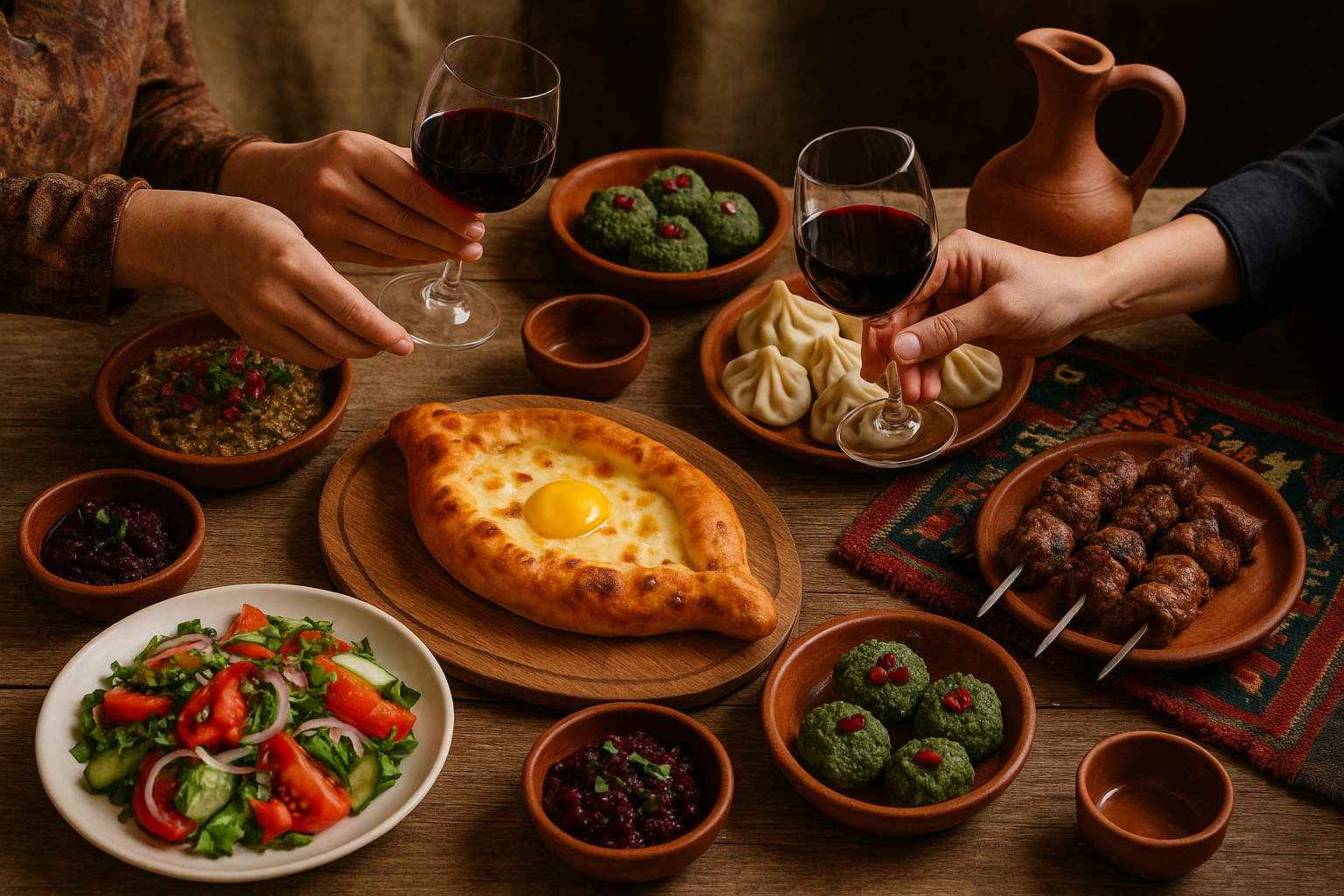
Georgia is a land where hospitality is not just a custom but a way of life, and nowhere is this more evident than at the Georgian table, where meals turn into rituals and gatherings into cultural celebrations, and to truly understand Georgia you must experience its supra, the traditional feast led by a tamada, the toastmaster, who guides the rhythm of the evening, weaving together history, humor, philosophy, and heartfelt emotion, because for Georgians, sharing food is never simply about eating but about bonding, honoring guests, and expressing respect for life itself, and as a visitor, it is helpful to know the unwritten rules of Georgian table etiquette, those small yet significant gestures that make you not just an observer but a welcomed participant in this centuries-old tradition, starting with the role of the tamada, who is not only the leader of the feast but the soul of it, chosen for his eloquence, wit, and ability to maintain harmony, and when the tamada raises his glass, everyone listens, for every toast carries meaning, whether to peace, friendship, ancestors, or the future, and after his words, others may follow with their own reflections, but it is always the toast who decides when to move on, so the first and most important rule is to respect his role, never interrupting or speaking over him, and always raising your glass in acknowledgment, another key aspect is the ritual of toasting itself, which is not done casually but with purpose, for when a toast is made you are expected to finish your glass, especially if drinking wine, and while Georgians are proud of their winemaking heritage, known as the cradle of wine with an 8000-year history, it is not about drinking quickly but about honoring the moment, so pace yourself, eat well, and appreciate the stories behind each toast, because the supra is a marathon, not a sprint, and food plays a central role, often arriving in endless succession, from pkhali, khachapuri, and khinkali to mtsvadi, churchkhela, and countless salads, with the table always abundant, symbolizing prosperity and generosity, and it is polite to at least taste everything offered, for refusing may be seen as disrespectful, yet if you cannot finish, leaving a little on your plate is acceptable, as it shows you are satisfied, another unwritten rule is to never pour your own wine, instead refill your neighbor's glass and allow them to do the same for you, reinforcing the communal spirit of sharing, and when offering a toast, hold your glass with both hands if the moment is solemn, or clink glasses gently, always looking into the eyes of the person you are toasting, because eye contact is a sign of sincerity, and while Georgians are warm and informal in daily life, the supra carries a certain gravity, so sitting properly, engaging in conversation, and showing appreciation for the effort of your hosts are all essential signs of respect, and music and dance often accompany the feast, with polyphonic singing, recognized by UNESCO as intangible cultural heritage, filling the room with harmony, so do not be shy if invited to sing or dance, as participation is valued more than perfection, and beyond the joyous atmosphere lies a deeper philosophy, for Georgian hospitality is rooted in the belief that a guest is a gift from God, and to welcome someone at your table is to open your heart, which is why visitors are treated not as strangers but as family, and by following these unwritten rules you not only show courtesy but also become part of the tradition itself, creating memories that last long after the glasses are empty, in summary, Georgian table etiquette is less about rigid rules and more about shared values: respect for the toast, attention to toasts, willingness to share food and drink, and genuine appreciation for the company, and once you embrace these customs, you will see that the Georgian table is not just about eating or drinking but about weaving connections between past and present, hosts and guests, individuals and communities, a living reflection of Georgia's spirit of generosity, so next time you sit at a Georgian supra, remember that you are not just attending a meal, you are taking part in a cultural ceremony where every toast, every song, and every bite tells a story, and by honoring these traditions you will experience the true meaning of Georgian hospitality.






 Deutsch
Deutsch
 русский
русский
